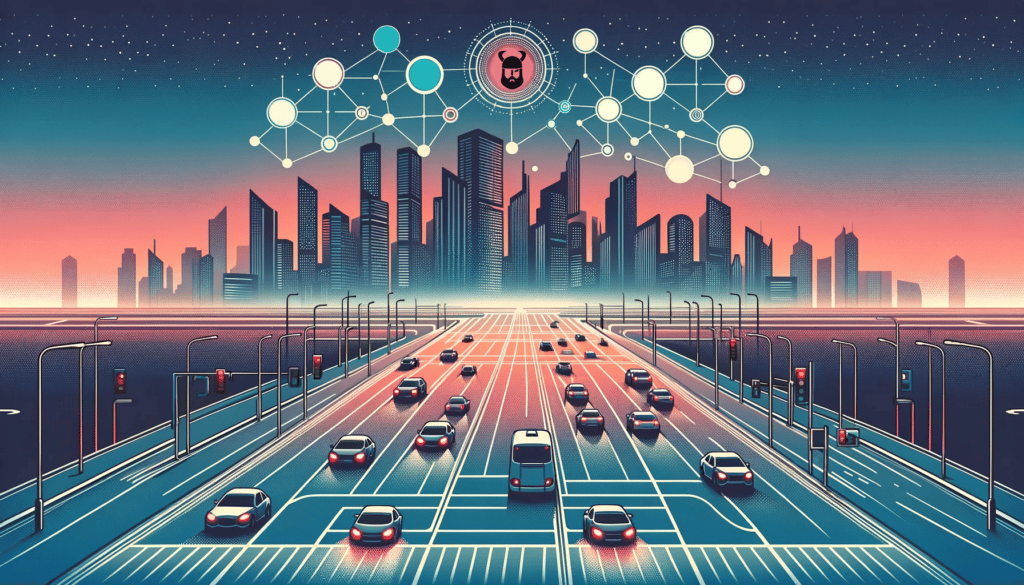Three key learnings from Uber Latin America’s women in tech event series
26 July 2023 / Global
Uber Latin America recently launched a new tech series––called Ada Talks––in response to overwhelming interest and requests to hear directly from women at Uber. During the events, panels composed of women in tech at Uber, offer an exciting glimpse into their day-to-day life, a deep dive into their globally impactful work, and how they continue to grow their careers across data science, product management, product design, technical program management, engineering, and product operation management.
Below are three lessons from our most recent events:
1. Build locally, deliver globally. At the speed of now.

One critical factor that underpins our technology model is a dual global and local focus. Engineering solutions developed for the platform by teams in Latin America are typically rolled out for many – if not all – of Uber’s customers worldwide.
Mariane Romildo dos Santos, a Data Scientist on our Safety team in Brazil, highlighted the need to factor this global lens into the entire product development cycle: “You need to think about how features will be used on a global scale: do they need to be modified to be used elsewhere in the world?”
In another Ada Talk, Senior Technical Program Manager Clarissa Rodrigues emphasized the importance of our value Go Get It and how we hustle, embrace the grind, overcome adversity, and play to win for the people we serve. “When you look at the app, you can’t even begin to imagine how much technology it relies on and how complex it is. Here at Uber, we are constantly delivering, putting new features into production with fast releases going out both locally and globally all the time.”
2. Global collaboration helps solve even the most complex problems.

In addition to our global customer base, which numbers some 130 million users across 70 countries worldwide, another important facet of our day-to-day business is the global nature of our teams. Local teams in Latin America collaborate daily with other Uber offices around the globe. According to Eduarda Espindola, a Data Scientist on the Safety team, this represents a challenge, but also a major opportunity. “One complex issue that we always find a way to overcome is time zones. But with teams stationed across different regions, there’s plenty of scope for exchange and joint analysis.”
Our tech staff also works in teams across a variety of disciplines and locations, each of which has a key role to play in developing our features and products. Juliana Barreto is the Product Operations Manager of our Safety team. She stressed the importance of working closely with these teams on a daily basis to ensure that products are of the requisite quality and released on time. “You need to know how to build a dialogue with the data and Product Management teams, as well as learn how to develop a critical eye and interpret metrics. Part of our role is knowing how to spot bottlenecks and raising your hand when you need to.” Our product solutions are implemented in real-time and on thousands of city streets, providing careers to people all over the world.
3. Put Safety at the forefront of every project.

One of Uber’s core values is Stand for Safety. This means embedding safety into everything we do. We know the work of safety never stops, yet we can and will challenge ourselves to always be better for the communities we serve. And this is a value that every person on Uber’s tech team strives to embrace every day, starting with our large team here in Brazil, which is responsible for designing new features to make our platform even safer for our partners and our customers.
Among the main features developed by our Brazil tech team, Juliana singled out three: U-Selfie, which is used to verify the identity of the driver; RideCheck, which uses GPS data and other smartphone sensors to check why the vehicle has stopped unexpectedly; and PIN, a safety feature that riders can use to make sure they’re hopping into the ride they requested.
Mariana Esteves, Product Lead for Safety, emphasized the importance of thinking about safety features and the interaction between our drivers and partners in the real world: “(…) in everything we design and ultimately produce, we have to figure out how we can make it as easy as possible for people to interact on the platform. We need to understand what is happening in the real world and how to improve these interactions.”
Tips for our recruitment process:
During the event series, our speakers also shared a few useful tips about Uber’s recruitment process.
Cassia Oliveira, Product Designer, underlined the importance of good communication skills in everyday work: “You need to understand that communication is a very wide-ranging skill: sometimes more context is needed and you need to know how to provide that. You, therefore, have to have clear intentions about everything: for each form of communication (meetings, written communications), you need to establish the exact objective.”
Mariana Esteves, who also heads up a team of product managers in our Safety team, also explained the importance of communication and active listening in a global environment such as ours: “You have to be able to express yourself clearly, and to always tell a story. Since you’ll be communicating with people from different countries and cultural backgrounds, this needs to be done in a very clear way. It’s crucial to properly understand the different concerns of the various teams.”
For Product Operations Manager, Juliana Barreto, good problem-solving skills are essential to how Uber operates. “We need to have a good understanding of how our business works, use logical reasoning to interpret each problem and be able to come up with a solution. My advice is: study hard, develop a good understanding of what the business needs, and feel confident discussing it. Also, always have good technical arguments ready for interview questions.” Eduarda Espindola adds, “You don’t have to answer every question during the selection process. What’s more important is that you demonstrate your line of reasoning and an ability to ask the right questions and to learn.”
Another area that undoubtedly raises plenty of questions is technical expertise. Each role requires a particular degree of technical understanding, depending on the level of seniority. For those interested in joining their team, our data scientists suggested a strong focus on statistics and testing processes. Practically every day at Uber, they’re conducting trial runs and A/B testing before putting features into production.
Product Manager Mariana Esteves highlighted the importance of understanding the software development cycle from a technical perspective: “You need to have a solid grasp of the engineering side of the project. This means figuring out if bugs can be easily fixed from a technical point of view if problems can be solved in alternative ways, or if the feature being developed has a greater impact at the front or back end of the process. In short, you need to understand how digital products are made.”
Posted by Uber
Come reimagine with us
Related articles
Most popular

The Accounter: Scaling Operational Throughput on Uber’s Stateful Platform

Introducing the Prompt Engineering Toolkit

Serving Millions of Apache Pinot™ Queries with Neutrino

Your guide to NJ TRANSIT’s Access Link Riders’ Choice Pilot 2.0
Products
Company




